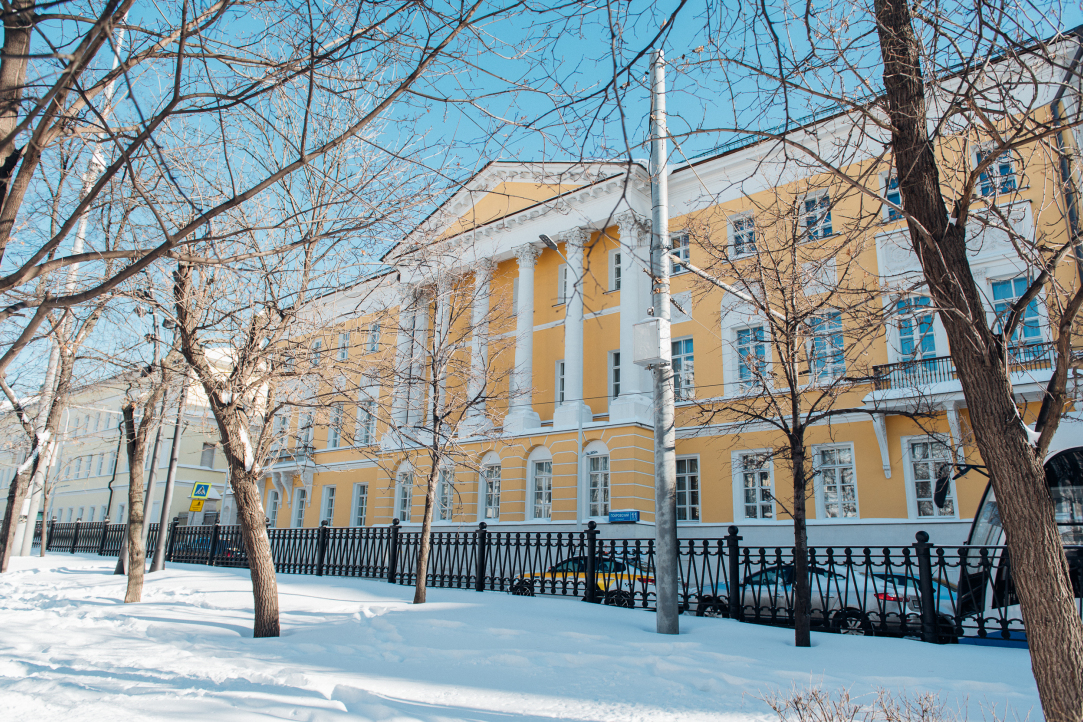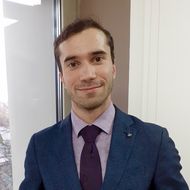- A
- A
- A
- ABC
- ABC
- ABC
- А
- А
- А
- А
- А
- HSE University
- Faculties
- Faculty of Economic Sciences
- School of Finance
- News
- Creative Industries, Social Protection Measures, and Research Income: HSE in 2022
-
The School
-
RESEARCH ACTIVITIES
- Laboratories
- Series “Advanced studies in emerging market’s finance” at Springer Nature o Networking with international academic associations
- Networking with international academic associations
- Research seminars
- International PhD workshop
- The International Seminar «ESG Transformation»
-
RESEARCH WORKING GROUPS
- Research Working Group "Innovations in the banking sector, its financial stability and prudential regulation"
- BUSINESS EDUCATION
- Networking with business associations
- Networking with professional associations
- Center for Research on Non-Financial Reporting
-
DATABASES
119049 Moscow, Russia
11 Pokrovskiy boulevard, room S629
Phone:
+7 (495) 772-95-90*27447, *27947, *27190
+7 (495) 916-88-08 (Master’s Programme Corporate Finance)
- Email: df@hse.ru
Head of Corporate Finance Research Center, Dr., tenured professor

+7495-772-95-90 (add. 27447)

+7495-772-95-90 (add. 27947)
The HSE School of Finance is the leading Russian competence center in the field of corporate finance, business valuation, banking, stock market, risk management and insurance, accounting and audit.
HSE is the first Russian university in the global ranking "QS - World University Rankings by subject", 2022 in the subject area of Accounting and Finance. Moreover, the university is the 1-st in the rating "THE World University Rankings by subject" in the subject area of Business & Management Studies, 2022
Cherkasova V. A., Nenuzhenko I.
Journal of Economic Integration. 2022. Vol. 37. No. 1. P. 54-92.
Electronic Journal of Applied Statistical Analysis. 2022. Vol. 15. No. 1. P. 187-210.
Kolade S. A., Semenova M.
Financial Economics. FE. Высшая школа экономики, 2022. No. WP BRP 87/FE/2022.
Управление финансовыми рисками. 2022. Т. 70. № 2. С. 108-120.
In bk.: The 8th International Conference on Information Technology and Quantitative Management (ITQM 2020 & 2021): Developing Global Digital Economy after COVID-19. Vol. 199: The 8th International Conference on Information Technology and Quantitative Management (ITQM 2020 & 2021): Developing Global Digital Economy after COVID-19. Manchester: Elsevier, 2022. P. 798-805.
Korablev D., Poduhovich D.
Journal of Corporate Finance Research. 2022. Vol. 16. No. 1. P. 136-145.
Olkhovik V., Lyutova O. I., Juchnevicius E.
Научно-исследовательский финансовый институт. Финансовый журнал. 2022. Vol. 14. No. 2. P. 73-90.
Churyk N. T., Anna Vysotskaya, Kolk B. v.
Journal of Accounting Education. 2022. Vol. 58.
Абдрахманова Г. И., Васильковский С. А., Вишневский К. О. и др.
М.: Издательский дом ГУ-ВШЭ, 2022.
Абдрахманова Г. И., Васильковский С. А., Вишневский К. О. и др.
М.: Национальный исследовательский университет "Высшая школа экономики", 2022.
Гришунин С. В., Сулоева С. Б., Пищалкина И. И.
Организатор производства. 2022. Т. 30. № 1. С. 60-72.
Гришунин С. В., Сулоева С. Б., Пищалкина И. И.
Экономический анализ: теория и практика. 2022. Т. 21. № 3. С. 478-496.
S. Grishunin, E. Naumova, N. Lukshina et al.
Russian Management Journal. 2021. Vol. 19. No. 4. P. 475-493.
Journal of Corporate Finance Research. 2022. Vol. 16. No. 1. P. 99-112.
Grishunin S., Bukreeva Alesya, Alyona A.
In bk.: The 8th International Conference on Information Technology and Quantitative Management (ITQM 2020 & 2021): Developing Global Digital Economy after COVID-19. Vol. 199: The 8th International Conference on Information Technology and Quantitative Management (ITQM 2020 & 2021): Developing Global Digital Economy after COVID-19. Manchester: Elsevier, 2022. P. 190-197.
 International Conference “Future Directions in Accounting and Finance Education”, 27-28 May 2019, Moscow, Russia
International Conference “Future Directions in Accounting and Finance Education”, 27-28 May 2019, Moscow, Russia
Edited by: А. Б. Высотская, B. v. Kolk.
Vol. 58. Elsevier, 2022.
Karamysheva M., Seregina E.
Journal of International Money and Finance. 2022. Vol. 127.
In press
Journal of Economic Dynamics and Control. 2022. Vol. 137.
Karamysheva M., Skrobotov A.
Journal of Economic Dynamics and Control. 2022. Vol. 138.
Известия Санкт-Петербургского государственного экономического университета. 2022. № 4. С. 144-155.
Тихомиров Д. В., Цехомский Н. В.
Экономика и управление. 2022. Т. 28. № 1. С. 16-24.
Селезнёва З. В., Евдокимова М. С.
Финансы: теория и практика. 2022. Т. 26. № 3. С. 64-84.
Evdokimova M., Stepanova A. N.
In bk.: 38th EBES Conference - Program and Abstract Book. Istanbul: EBES, 2022. P. 39.
Assanskiy A., Shaposhnikov D., Tylkin I. et al.
Journal of Behavioral and Experimental Economics. 2022. Vol. 98.
Teplova T., Mikova E., Munir Q. et al.
Economic Change and Restructuring. 2023. Vol. 56. No. 1. P. 515-535.
Повх К. С., Кокорева М. С., Степанова А. Н.
Экономический журнал Высшей школы экономики. 2022. Т. 26. № 1. С. 9-36.
Anton Markov, Zinaida Seleznyova, Victor Lapshin.
Journal of Finance and Data Science. 2022. Vol. 8. P. 180-201.

Creative Industries, Social Protection Measures, and Research Income: HSE in 2022

A regular session of the HSE Academic Council considered the key aspects of university’s operations in 2022. In particular, the business plan for 2022 and the planning period of 2023 and 2024 was approved, the decision to rename the Faculty of Communications, Media and Design to the Faculty of Creative Industries was made, and the Regulations on Organization of Interim and Ongoing Assessment of Students were approved.
Off-Budget Revenues to Exceed Public Funds
Vice Rector Alexey Novoseltsev presented the HSE Business Plan for 2022 and the planning period of 2023 and 2024.
He said that the Programme of HSE Development until 2030 will be funded from all sources of university revenue, which currently amount to about 30 billion roubles annually and are set to grow to approximately 50 billion by 2030. The volume of off-budget revenue will exceed public funding in 2022.
Additional funds for expanding the HSE Fundamental Research programme have been allocated, with 1 billion roubles more assigned for research as part of the state commission and the expected growth of the annual state research commission to reach 6 billion by 2030.
We are confident that these funds will not be cut. Furthermore, the university has a right and an opportunity to negotiate additional funding programmes
HSE University’s planned revenues will exceed 33 billion roubles in 2022, which is about 18% higher than in 2021. The expected growth will be thanks to education (including continuing education), state financing, and other projects. Off-budget revenue from research will also grow, and in total, research, with state funding and off-budget sources, will amount to 25% of the university’s revenues. ‘This means that we are becoming more and more focused on research as a key activity of the university,’ Alexey Novoseltsev said.
Mr. Novoseltsev said that according to the plan, revenue growth will exceed 9% in 2022 This has always been the case, except for 2020 and 2021, when revenues decreased due to the pandemic. Despite this fact, all student support policies were preserved: a wide range of tuition fee discounts and tuition waivers, the ‘Social Lift’ programme for underprivileged applicants, employment opportunities at the university, development of student research, academic mobility, etc. The psychological support service was also expanded in response to growing demand.
The approved plan involves expanding project tools and funds. Spending on academic bonuses will grow (by a planned amount of 891 million roubles based on 2021 results, and by 1.086 billion under the plan for 2022), as well as for teachers’ bonuses (including for authors and others), benefits for heads of degree programmes and doctoral schools, international recruitment, international laboratories, etc.
Based on the results for 2022, the average monthly salary of full-time teaching staff at the Moscow campus of HSE University will grow to 212,000 roubles (according to conservative estimates).
Sustainable Development Model
Tenured Professor Nikolay Berzon, head of the HSE Academic Council Budget Committee, commented on HSE’s business plan and emphasized that ‘the shift of financial indicators towards research is a sign that HSE is truly a national research university.’ The share is growing thanks to both the state funding and other projects that HSE University is involved in, and this is a positive development.
‘We are seeing a sustainable growth trend in tuition fee revenue. Previously, state funding accounted for two thirds of degree programme revenues, while fee-paying programmes were responsible for about a third of revenues. Today, the ratio is almost 50/50. This means that HSE University is sustainably increasing the volume of its operations,’ Nikolay Berzon said.
He also noted that when the pandemic started, there were concerns that the university would face big financial deficit. However, it displayed growth after 2020 and 2021—unlike other universities, who suffered from decreased enrolment of fee-paying students. ‘HSE University’s sustainable development model has evolved, and we’ll have to maintain this trend in the future,’ Nikolay Berzon said.
Competency Centre and Identity
The Academic Council decided to rename the Faculty of Communications, Media and Design to the Faculty of Creative Industries. It will get its new name in summer 2022 (the six-months delay is due to graduation-related administrative processes). According to HSE Vice Rector Sergey Roshchin, the renaming is not related to any structural changes: such changes are taking place anyway, and there is no hidden agenda behind the renaming.
Dean Andrey Bystritskiy explained the meaning of the new name.
‘Creative industries are an important area of development in the modern world, including in Russia. The world is changing significantly, allowing and demanding that people feel and express themselves in a different way. A global emancipation of human personality is taking place, and this requires a change of approach to education. Today’s HSE Faculty of Communications, Media and Design is in fact a faculty of creative industries: its structure and activities include everything that is considered part of creative industries,’ Andrey Bystritskiy said.
He also pointed out that this year, the faculty launched its ambitious Film Institute project. The faculty is already preparing professionals who are ready to work in the creative industries. The process of creating products for creative industries involves 6,500 students, 277 staff members, and over 500 part-time employees. For example, the faculty has been organizing the Telling Stories festival, which is a festival of creative industries for several years now.
Andrey Bystritskiy added that to achieve success, the faculty needs to build a team of professionals.
Nothing is more important in creative industries than people who are able to create
He believes that the popular term ‘creative industries’ refers to more than just a new phenomenon; it will mobilize the team to develop further, as well as promote the faculty’s image as a competency centre worth applying to as a centre of expertise in creative industries. This is a matter of identity, which is essential for any kind of development.
Conscientious Learning
The Academic Council approved a new edition of the Regulations on Organization of Interim and Ongoing Assessment of Students (previously called Regulations on Knowledge Assessment) presented by Sergey Roshchin. Before being submitted to the Academic Council, the document was approved by the university’s Student Council.
The Regulations define the concept of conscientious learning, which includes completing an individual curriculum, attending consultations with teachers or teaching assistants in the event of difficulties, not failing assignments or limiting the number of failures to two, completing home assignments, preparing for classes (in line with the syllabus), and attending classes. If a student fails to meet their responsibility for conscientious learning, the university can dismiss them.
The regulations also specify the conditions for the transition to online record sheets and introduce the term ‘independent examination’ (independent assessment of competencies in Data Culture, English language, economic and legal literacy). The sections on practical classes, projects and term exams were replaced with a section on the elements of practical training. Some technical amendments, such as updated terminology and clarification of wording, were also added.
Fresh Forces
HSE Rector Nikita Anisimov introduced Sergey Rozhkov, a new Vice Rector who will oversee security matters at the university. Sergey Rozhkov will supervise the HSE Office of Security. His responsibilities include organizing anti-terrorist protection of university facilities, ensuring the security of university events, fire safety, the protection of venues, information security, the organization of civil defence and the operations of the Military Training Centre.
Nikita Anisimov said that this is a final administrative appointment and emphasized that he is very optimistic about the administrative team.
The Academic Council also made a decision on the restructuring of HSE University's Perm campus, approved regulations on publication activity assessment for staff members in 2022 and the requirements of educational programmes for research and teaching staff as part of HSE doctoral programmes, and examined a number of other issues.
- About
- About
- Key Figures & Facts
- Faculties & Departments
- International Partnerships
- Faculty & Staff
- HSE Buildings
- Public Enquiries
- Studies
- Admissions
- Programme Catalogue
- Undergraduate
- Graduate
- Exchange Programmes
- Summer University
- Summer Schools
- Semester in Moscow
- Business Internship
-
https://elearning.hse.ru/en/mooc/
Massive Open Online Courses
-
https://www.hse.ru/en/visual/
HSE Site for the Visually Impaired
-
http://5top100.com/
Russian Academic Excellence Project 5-100
- © HSE University 1993–2024 Contacts Copyright Privacy Policy Site Map
- Edit


